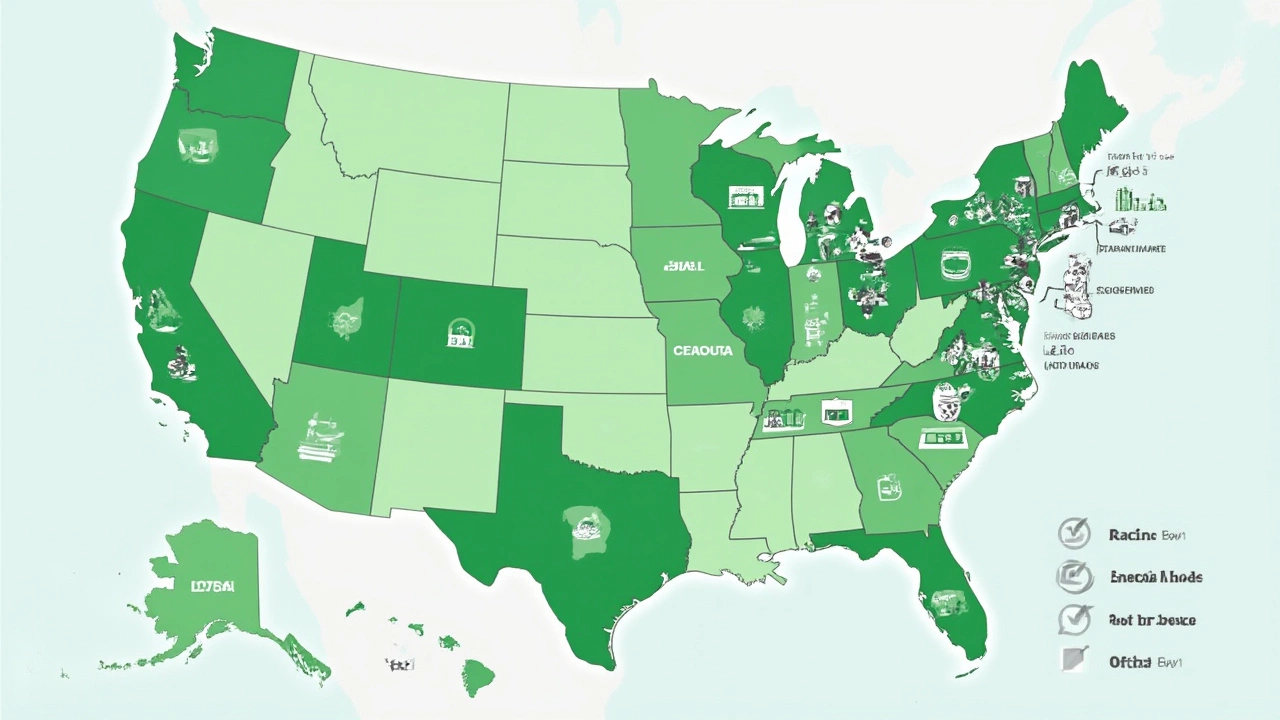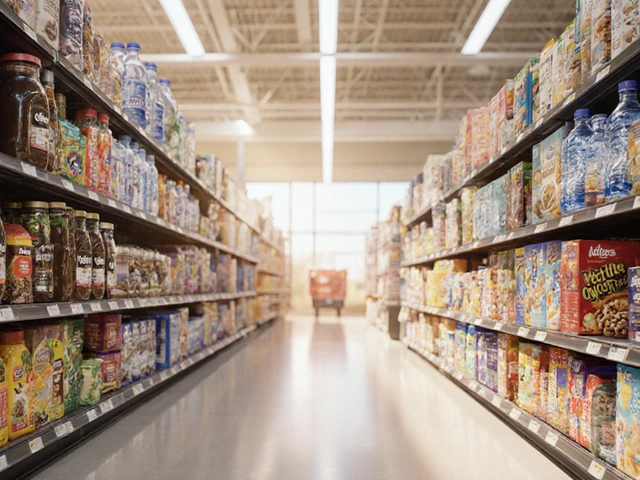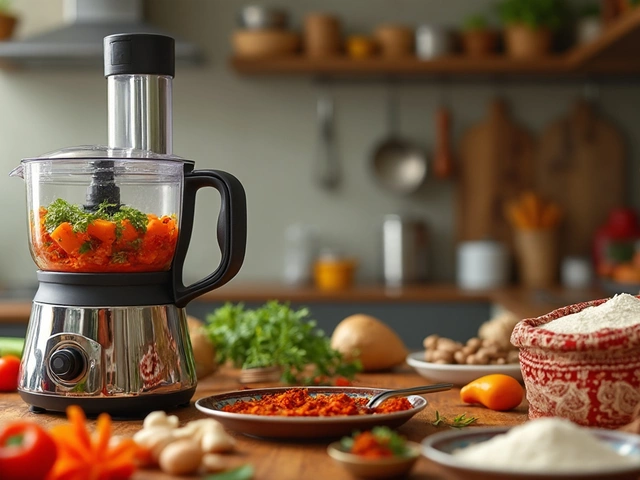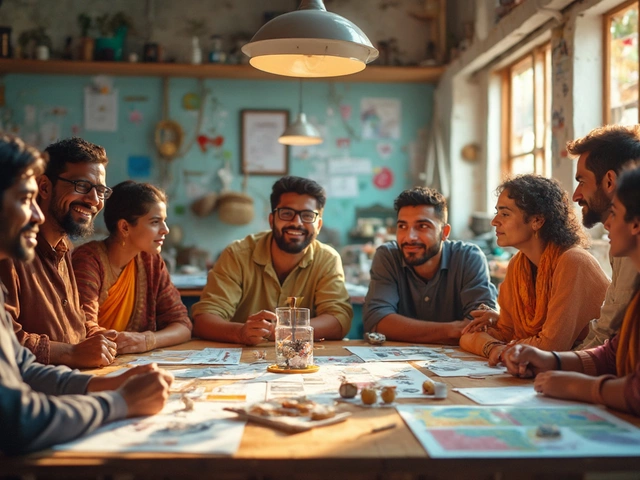Bans on plastic aren’t just some far-off threat; they're already shaping daily life in a lot of places across the US. Found yourself scrambling for a reusable bag at the checkout line lately? Or maybe you’ve had to sip a smoothie through one of those paper straws that collapse after two sips. That’s not just a passing trend — it’s policy in action, rolling out one city, one county, one state at a time. Why the fuss? Americans throw away billions of single-use plastics yearly, clogging up landfills and washing into oceans. These bans are a direct response to that mountain of waste. But here’s the catch: the rules are a patchwork, and what’s banned in one state is totally fine to toss out in another. Some of these rules often surprise folks who just want to know, "Do I need to remember my own bag today, or can I grab a plastic one?" It isn’t simple, but I’ll break down where these bans stick, what you really need to know, and why that floppy paper straw landed in your cup.
Statewide Plastic Bans and What They Target
The plastic ban scene in the US is kind of a wild west — there’s no single national law, so each state picks its own fight with plastic. Right now, statewide bans focus mostly on plastic bags, a few on straws and polystyrene (think foam takeout boxes). As of July 2025, ten states have put their foot down against single-use plastic bags, and a handful added extra restrictions for other plastic items. Here’s a spotlight on the biggest states leading the charge:
- California: The real trailblazer. Since 2016, large retailers can’t hand out plastic grocery bags. They offer paper or reusable ones instead, and there’s usually a 10-cent charge if you forget yours.
- New York: Plastic carryout bags gone statewide since 2020. Some exemptions exist, but for most things, your groceries need to ride home in something else.
- Oregon, Connecticut, New Jersey, Vermont, Maine, Delaware, Colorado, and Hawaii: These states also ban single-use plastic bags. Each state has its list of where and what’s banned — for example, Vermont outlawed both plastic bags and foam containers, and Maine banned foam food containers too. Colorado’s plastic bag ban started in 2024, and even covers certain plastic straws.
- Washington State: Plastic bags are banned, and the state places strict regulations on paper and thicker reusable bags, requiring retailers to charge for them.
- Hawaii: Not an official state ban, but all major counties have banned plastic bags, which makes it a practical statewide ban — try finding a regular plastic bag at a Hawaiian supermarket; no luck.
What about single-use straws and polystyrene foam (the infamous white clamshells for leftovers)? Seattle was the first city to ban plastic straws and utensils in 2018, and more cities followed. States like Maine, Vermont, and Colorado prohibited foam containers. New England loves its lobster, but you better hope your takeout comes in cardboard.
There are wild exceptions even within these broad bans. Medicine vials, dry cleaning bags, and dog poop bags usually get a legal pass. Small businesses might get longer to switch. In some states, stores under a certain size can still offer plastic bags for a while. Confusing? Yes. But that’s how it stands.
For anyone running a business or just trying to avoid a “Sorry, we don’t have plastic bags” surprise, double-check your state and local rules. Don’t assume that what’s fine in one state carries over across state lines. And remember — the plastic bag ban list is growing every year.
Here’s a quick look at some of the major state bans and what they cover as of July 2025:
| State | Plastic Bags | Plastic Straws | Foam Food Containers |
|---|---|---|---|
| California | Banned | By request only | Local bans only |
| New York | Banned | No statewide ban | Local bans only |
| Oregon | Banned | No statewide ban | Local bans only |
| Vermont | Banned | Banned | Banned |
| New Jersey | Banned | No statewide ban | Banned |
| Maine | Banned | No statewide ban | Banned |
| Washington | Banned | No statewide ban | Local bans only |
| Colorado | Banned | Banned | Banned |
| Hawaii | Banned (all counties) | No statewide ban | Local bans only |
| Delaware | Banned | No statewide ban | Local bans only |
Chasing reusable bags isn’t just a hipster move anymore. Across these states, you need to have them handy if you don’t want to drop your groceries on your shoes in the parking lot.

City and County Bans: Patchwork Rules and Surprises
Here’s the kicker: most Americans feel plastic bans first at the city or county level, not the state. If you live in states like Texas or Florida, there’s still a good chance your city wants to curb single-use plastic even if the state government isn’t a fan (though, fun fact, some states actually passed laws blocking cities from doing just that — it’s called "preemption").
Major US cities have been pushing for plastic bans well before some of their states caught on. Seattle, San Francisco, and Portland led the charge. San Francisco was the first big American city to ban plastic grocery bags — that’s way back in 2007. New York City had its own foam ban before the state stepped in. And on the east coast, places like Brookline, Massachusetts, and Washington, DC, kicked off bans on plastic bags and foam packaging years ago.
The rules are all over the map. Some towns just outlaw regular thin plastic grocery bags, while others ban every shape and size you can imagine. Over 400 cities have bans or fees for single-use bags. Foam is a popular target, too — it sticks around forever in the landfill, and cities hate how it blows down the street. Maryland became the first state to ban foam in 2020, but lots of cities got there first. Even Miami Beach went hard against foam takeout containers.
But things get trickier. Some states, like Wisconsin and Arizona, have laws actually forbidding their cities or towns from banning plastic — so-called “ban on bans.” Here, even if your local city council wants to phase out single-use plastic, state law blocks them from acting. That’s why plastic bag rules are so different across the US. One gas station stop can mean surprise charges or a mad dash to the car for a forgotten tote.
City bans often go further than state ones. A lot include fees for paper bags (usually 5–10 cents), hoping you’ll ditch single-use anything for good. Others target restaurant supplies: utensils, cups, straws, and even coffee stirrers made from plastic. New York City, for example, still requires a compostable container for your street cart falafel. In contrast, Houston, Texas, has no city or state bans, and you can still get as many plastic bags as you want.
For travelers, business owners, and even regular shoppers, it pays to check the rules before a trip. Flouting a ban could get your favorite lunch spot fined — or land you with a table full of paper-wrapped leftovers and no way to carry them home. Want a tip to blend in anywhere? Stash a small, foldable reusable bag, and keep a stainless straw in the car or your office drawer. Even if you don’t care about the planet, dodging awkward checkout moments is reason enough.
Cities will sometimes post plastic ban info on their websites, but not always in a spot that’s easy to find. And enforcement? Usually, it’s the business, not the shopper, on the hook. But nobody wants to be THAT customer who holds up the line arguing about a forbidden plastic bag.
A quick look at a few big city rules:
- San Francisco: No plastic grocery bags since 2007, fee on paper and compostable bags, ban on polystyrene foam since 2007.
- Seattle: Plastic bags, straws, and utensils banned. Fees on most paper bags.
- San Diego: Ban on plastic bags and expanded polystyrene foam food packaging.
- New York City: Ban on plastic bags, foam containers, and restrictions on plastic straws. Must provide an alternative for people with disabilities who request it.
- Boulder, Colorado: Fee on all bags, strong ban on foam, plastic straws on request only.
Sometimes, these rules take a sideways leap. For example: starting in 2024, New Jersey banned BOTH plastic and paper bags at major supermarkets, so only reusable bags are allowed. That move alone cut millions of bags out of landfills in just a year.
Local bans are spreading every month. It’s not just a “coastal city” thing anymore. Cities in states like Ohio, South Carolina, and even some in Texas are fighting for local rules, sometimes butting heads with state lawmakers. The next time you’re heading to a new place, look up their bag and packaging rules. You’ll look less confused at the checkout, and maybe even ace the next round of plastic trivia.

How Plastic Bans Affect Daily Life and What You Can Do
So, do all these bans work, or is it just politicians chasing green PR? Here’s where it gets interesting. Several cities actually measured the impact. In San Jose, California, researchers saw a whopping 76% drop in plastic bag litter in storm drains less than two years after their ban. Portland, Maine cut plastic bags from the local waste stream by nearly half. These aren’t small changes — streets are cleaner, wildlife faces less risk, and landfills get a breather.
But there’s another side. People forget reusable bags, paper straws collapse, and some folks get creative (a viral TikTok showed someone hauling groceries home in a suitcase). Not all reusable bags are equal, either; some studies point out that the super-thick tote bags need hundreds of uses to balance out their environmental footprint. The best tip? Pick a few sturdy, washable bags you actually like using, stash them in the car, backpack, or even a coat pocket. Turn it into a habit — grab your phone, keys, wallet, and bag. Easy.
Plastic bans push companies and restaurants to get creative too. Starbucks now offers strawless lids, and some fast-food chains use compostable cups and utensils. You might see bioplastics (plant-based plastics that look and feel like the real thing), but here’s a heads-up: not every bioplastic breaks down unless it’s in an industrial compost facility. Look for products marked "home compostable" if you want something that won’t outlive you in a landfill.
If you’re tired of biting into soggy forks or wimpy paper straws, you have options. Stainless or silicone straws last for years, and bamboo cutlery can handle even the toughest takeout. For takeout nights, keep a set of reusable utensils in your car or bag. It won’t just save waste — you’ll outclass anyone at the picnic.
What if you’re running a restaurant or shop? Double-check local laws to dodge fines and awkward conversations. There are eco-friendly packaging companies popping up everywhere, and many suppliers now carry affordable compostable bags and boxes. Some cities offer grants to help small businesses make the switch. And if you can’t stand paper straws, offering a "straw on request" policy keeps you legal in most places without annoying customers.
Want the numbers? Here’s a quick data hit on what these bans have achieved, as tracked by city and state reports:
| Location | Year Ban Started | Plastic Bag Waste Reduction |
|---|---|---|
| San Jose, CA | 2012 | 76% less litter in storm drains |
| Chicago, IL | 2017 | 40% drop in bag use after 7-cent tax |
| Washington, DC | 2010 | Carryout bag litter down by 72% |
| Boulder, CO | 2013 | 70% decrease in bag distribution |
| New Jersey (statewide) | 2022 | Estimated 5 billion bags eliminated in first year |
The US isn’t banning all plastics yet — not even close. But with grocery bags, takeout boxes, and straws, bans are showing up in enough cities and states that plastic-free living isn’t so weird anymore. Don’t wait on a national ban; start by getting a stash of reusable bags and utensils you’ll remember to take with you. Your car, desk drawer, or purse can be your anti-plastic toolkit. If you’re traveling, check city and state government websites for local rules, especially if you travel for business and want to look like you know what you’re doing.
Change might feel awkward at first, but after a few weeks, it’s just another part of the daily routine. Small shifts — like saying "no bag, thanks," or keeping a reusable cup handy — add up. From Californian supermarkets to New York bodegas and Florida beach towns, plastic bans look set to cover more ground every year. Ready or not, it’s already happening in your neighborhood. The next time someone utters “Would you like a bag?” — make sure you’re ready with a move that works anywhere. If the paper straw starts to melt halfway through your iced coffee, hey, at least now you know why.






